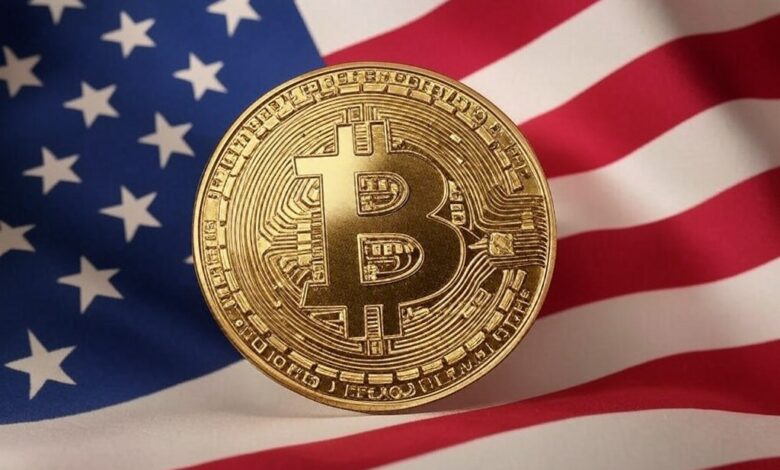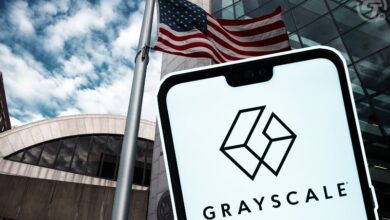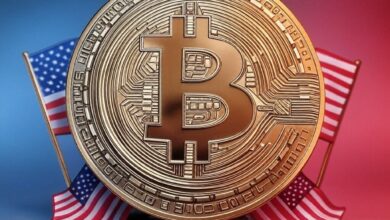U.S. Proposal for a Strategic Bitcoin Reserve Under Trump Administration

The Bitcoin Policy Institute has proposed creating a Strategic Bitcoin Reserve under the U.S. Treasury’s Exchange Stabilization Fund (ESF) during Donald Trump’s presidency. This initiative aims to establish the United States as a global leader in digital assets, leveraging Bitcoin’s role as “digital gold” to drive technological innovation, capital inflows, and financial resilience.
The plan seeks to formally designate Bitcoin as a reserve asset, diversifying the ESF’s holdings to secure long-term economic stability. By holding a finite and decentralized digital asset like Bitcoin, proponents argue the U.S. can strengthen its economy and safeguard the dollar’s global dominance.
The Bitcoin Act of 2024, introduced by Senator Cynthia Lummis in July, outlines a broader strategy. It proposes that the U.S. Treasury and Federal Reserve purchase 200,000 BTC annually over five years, totaling 1 million Bitcoin, or 5% of Bitcoin’s total supply. This reserve would be held for at least 20 years, aiming to bolster the U.S.’s financial stability and global influence.
Strategic Reserve Concept: How a Bitcoin Reserve Would Work
A strategic reserve is a stockpile of a critical resource used during crises or supply disruptions. The U.S. has historically employed this strategy, such as with its Strategic Petroleum Reserve, created after the 1973-74 Arab oil embargo.
Other countries maintain reserves of unique resources, like Canada’s maple syrup and China’s reserves of metals, grains, and pork. Applying this concept to Bitcoin could position the U.S. at the forefront of the evolving global financial landscape.
Seized Bitcoin as a Starting Point
The U.S. government holds approximately 200,000 BTC, seized from criminal activities, worth an estimated $21 billion at current prices. Trump has suggested that this existing stockpile could serve as the foundation for the reserve. To expand the reserve, the government could purchase Bitcoin from the open market, potentially issuing debt or selling gold reserves to fund these acquisitions.
While some analysts believe an executive order could create the reserve under the ESF, others argue that Congressional approval would be necessary. Senator Lummis’ proposal, for instance, would use profits from Federal Reserve deposits and gold holdings to finance the reserve.
Bitcoin Reserve: Opportunity or Gamble for U.S. Economy?
Proponents argue that a Bitcoin reserve could bolster the U.S. economy and enhance its global financial leadership, according to Reuters. By holding Bitcoin—an appreciating asset with limited supply—the U.S. could reduce its national deficit over time without raising taxes.
This strategic move could also strengthen the dollar’s position against foreign adversaries like China and Russia, as well as provide a hedge against inflation. A strong dollar would further solidify the U.S.’s influence on the global stage, offering additional leverage in geopolitical negotiations. Senator Lummis has suggested that this plan could cut U.S. debt in half within 20 years while providing long-term economic resilience.
Critics highlight several risks associated with creating a Bitcoin reserve. Bitcoin’s volatility and its relatively short history make its long-term value uncertain, posing potential risks to the U.S. economy. Additionally, unlike traditional strategic reserves, Bitcoin lacks intrinsic use and remains non-essential to economic functioning.
The security of crypto wallets also raises concerns, as they are susceptible to cyberattacks that could compromise the reserve. Moreover, any significant government purchase or sale of Bitcoin could create market instability due to the asset’s sensitivity to large transactions. These factors, combined with Bitcoin’s speculative nature, make the proposal a contentious issue among economists and policymakers.
State-Level Momentum for Bitcoin Reserves
The federal push mirrors momentum at the state level. Ohio Representative Derek Merrin introduced a bill on Tuesday that would allow the state treasury to invest public funds in Bitcoin.
Pennsylvania’s legislation, introduced by Representative Mike Cabell, seeks to allocate up to 10% of the state’s treasury reserves to Bitcoin as a hedge against inflation. Meanwhile, Texas has proposed funding its reserve through donations and authorizing Bitcoin payments for taxes and fees.
These state-level initiatives reflect growing recognition of Bitcoin’s potential to strengthen economic resilience. While the federal government debates a national reserve, individual states are proactively exploring how Bitcoin can serve as both an investment and a tool for financial innovation.
Market Implications
The speculation surrounding these proposals has driven Bitcoin prices to record highs. On Monday, Bitcoin surpassed $107,000, fueled by President-elect Trump’s renewed interest in establishing a strategic Bitcoin reserve.
In an interview with Fox Business, Perianne Boring, founder of The Digital Chamber, said “If Donald Trump is successful in putting forth a lot of the proposals that he’s proposed to the [crypto] community, the sky is the limit because Bitcoin has a fixed supply”.
She pointed to the stock-to-flow model, which forecasts Bitcoin’s price to exceed $800,000 by the end of 2025. Such a surge would push Bitcoin’s market capitalization to around $15 trillion, up from its current valuation of over $2 trillion.
The U.S. Treasury’s theoretical accumulation of 200,000 BTC annually reinforces expectations of stronger demand. Such actions could compel other nations to consider building their own strategic Bitcoin reserves, further fueling global demand.
Institutional support for Bitcoin also adds to this momentum. BlackRock, managing over $10 trillion in assets, has recommended that investors allocate 1-2% of their portfolios to Bitcoin.
Proponents of the reserve see it as a bold step toward financial innovation, while skeptics urge caution, citing potential economic and security risks. Whether through executive action or Congressional support, the proposal reflects the growing influence of digital assets in global finance.




